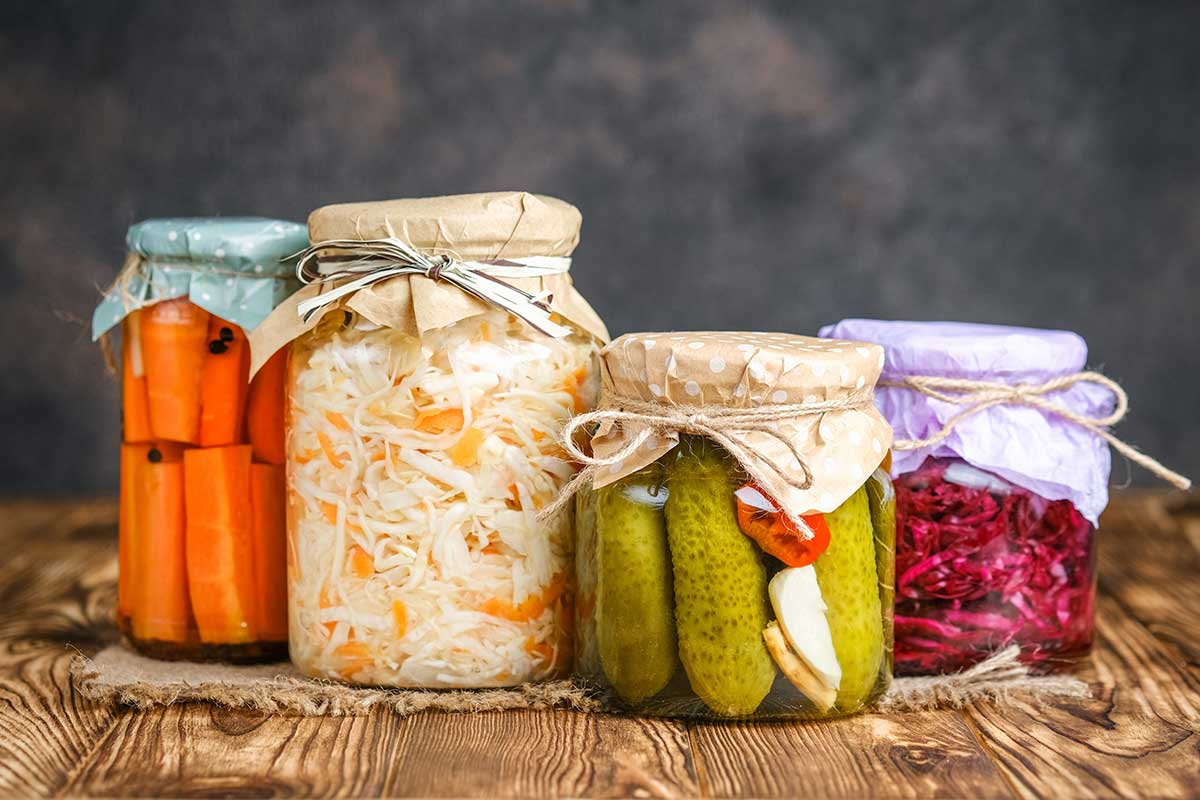
Nov 9, 2022
Blog Energy & Sustainability The fermentation industry is growing – but why is it so popular?
Fermenting is an ancient method of food preservation. It involves the conversion of certain food properties into another compound through the addition of a microbe like yeast. Sourdough bread, sauerkraut, kimchi, yogurt – these universally beloved foods are all derived from fermentation.
It’s not a new process, but it’s an industry that is poised for growth. New breakthroughs in biotechnology, such as the genetic engineering of microbes, are substantially and rapidly increasing the number of chemical building blocks available through fermentation. The global drive for a greener future is an outcome that is made a shade more achievable with fermentation. BCC Research has predicted that the global fermentation-derived fine chemicals market should reach heights of $42.4 billion by 2027, and it’s these possibilities that are pushing the market to further success.
The number of fermentation-derived products has increased beyond the estimates of industry developers. The growing awareness of the health benefits of fermented foods has played a significant role in this, and has enjoyed some hefty media coverage. The sustainable possibilities of fermentation is an area that has received considerably less attention but is driving the industry forward.
There’s an abundance of fine chemicals that are inordinately useful and can be created through fermentation. Amino acids, organic acids, industrial enzymes, polysaccharides and polymers, vitamins, antibiotics – the list goes on – can be manufactured from renewable sources with the help of microorganisms. These are considered ‘green chemicals’ and are carving out a new avenue of sustainability.
Green chemicals, made from bio-based feedstock, are far less damaging to the environment than other methods than petroleum-derived alternatives. Made from mostly raw materials like vegetable oils, animal fats, cereals, and bio-ethanol, green chemicals consume far fewer natural resources and preserve the balance of the ecosystem. With support for climate initiatives now reaching a global scale, the market for green chemicals will only increase. The environmental impact of traditional chemical manufacturing is well-acknowledged, but the rise of the green chemical industry is already significantly lessening its impact.
Consumer demand for organic foods is huge. A desire to live healthier and more sustainably is drawing people towards organic living, but demand continues to outstrip supply. This is creating additional pressure on purveyors of fermented foods, with organic and fermented being qualities that are naturally combined by health advocates. The USDA has become the gold standard for organic certification. Since regulations were implemented in 2002, the USDA has given the seal of approval to more than 25,000 operations in the US, at a total value of $63 billion in retail sales (2020-2021). This goes a long way in conveying the true might of the organic industry. With both industries being closely tied, the popularity of organic ingredients is creating a robust foundation for the continued popularity of fermentation ingredients.
Agricultural prices are currently unstable. Poor short-term production and consumption elasticities are having a knock-on effect on the market for fermentation ingredients. Cereals, grains, fruits, and vegetables are experiencing volatile price fluctuations. The landscape is known to be unstable, but it is now more so than ever before, and is likely to stay that way for some time.
The pandemic is an obvious trigger for the precarious nature of the landscape. Abrupt changes in consumption habits led to volatile raw material demand. As a response to the uncertainty, companies began stockpiling commodities or inflated volume predictions – which both only served to intensify uncertainty. Now, with the global economy suffering from geopolitical unrest and ongoing supply chain disruptions, the strains aren’t looking to ease anytime soon.
Despite the widespread uncertainty, hope remains. A considerable window of opportunity presents itself in the biopharmaceutical industry. The industry is already huge and expanding far too quickly to ignore; currently, biopharmaceutical represents 20% of the worldwide pharmaceutical business and is growing at double the rate of the rest of the industry. With biopharma driving nearly 50% of all pharmaceutical revenue, its profit margins are considerable.
Not unlike organic produce, fermentation is closely linked to the biopharmaceutical industry. Biopharmaceuticals like insulin, therapeutic proteins, enzymes, and antibiotics from microbes are produced through fermenting. Market expansion is possible as a direct result of the rising demand for fermentation-derived ingredients in biopharmaceuticals.
BCC Research’s report World Markets for Fermentation Ingredients deep-dives into the flourishing world of fermenting. Providing accurate market data, current trends, and five-year forecasts, the report is an invaluable tool for players navigating the industry.
Download your complimentary report overview or purchase the report here.
Alternatively, consider becoming a member of the BCC Research library. This membership grants access to a host of reports within your chosen field, allowing for a holistic approach to numerous relevant industries. Get in touch today through the button below to chat this through with a helpful BCC employee.

Olivia Lowden is a Junior Copywriter at BCC Research, writing content on everything from sustainability to fintech. Before beginning at BCC Research, she received a First-Class Master’s Degree in Creative Writing from the University of East Anglia.

Electrical switches—devices that control the flow of electricity—are the backbon...

As the world accelerates toward net-zero emissions, hydrogen, and ammonia have e...

Hydrogen technology is widely used across industries like glass, fertilizer, met...

We are your trusted research partner, providing actionable insights and custom consulting across life sciences, advanced materials, and technology. Allow BCC Research to nurture your smartest business decisions today, tomorrow, and beyond.
Contact UsBCC Research provides objective, unbiased measurement and assessment of market opportunities with detailed market research reports. Our experienced industry analysts assess growth opportunities, market sizing, technologies, applications, supply chains and companies with the singular goal of helping you make informed business decisions, free of noise and hype.